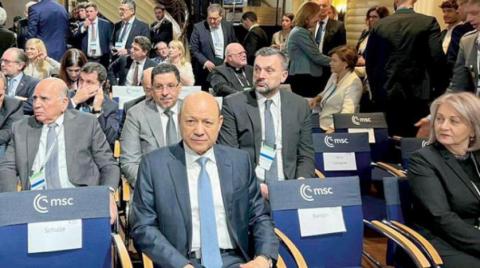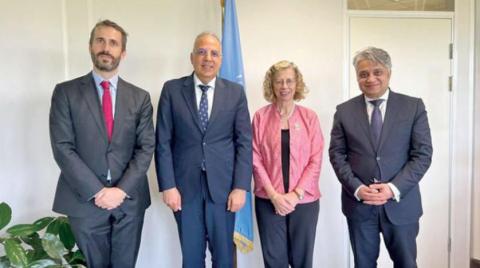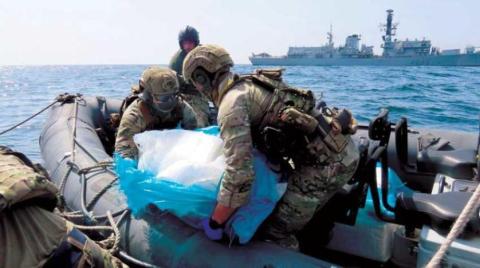
The head of the Yemeni Presidential Leadership Council, Rashad al-Alimi, intensified his meetings with European officials to mobilize European efforts to pressure the Houthi militia and support economic reforms.
Alimi, who is visiting Brussels, is heading back to Munich to participate in the Munich Security Conference. He is scheduled to speak at a dialogue session on the developments in Yemen, opportunities for restoring peace and stability, and ending the worst human suffering in the world.
On the sidelines of the conference, Alimi is scheduled to meet several international leaders and officials participating in the global gathering to discuss common challenges and ways to coordinate positions and visions at various levels.
Alimi and council member Faraj al-Bahsani met the High Representative of the European Union for Foreign Affairs and Security Policy, Josep Borrell.
The meeting addressed the local developments and needed European involvement to reduce humanitarian suffering and support resorting peace, stability, and development.
The head of the Council stressed the importance of an advanced understanding of the Yemeni issue based on correcting misleading narratives about the roots of the crisis.
Alimi noted that reaching sustainable peace in Yemen was difficult without pressuring the militia and their Iranian supporters.
Also in Brussels, the Yemeni leader met the European Commissioner for International Partnerships, Jutta Urpilainen, and reviewed the Yemeni developments and the European pressures required to push the Houthi terrorist militias to deal seriously with efforts to establish peace.
He asserted the need to pressure the militia to prioritize the Yemeni interests over the Iranian regime and its regional project.
The meeting touched on economic and service reforms led by the Presidential Leadership Council and the government and the challenges faced by the Yemeni state to alleviate human suffering in the wake of the Houthi terrorist attacks on oil facilities and global energy supplies.
Saba news agency quoted Urpilainen as confirming the EU's commitment to supporting the Council and the government through a larger package of humanitarian and more sustainable financial aid.
The European official also affirmed the EU's readiness to provide technical support and assistance to promote comprehensive institutional and economic reforms in Yemen.
Meanwhile, Prime Minister Maeen Abdulmalik said the efforts to renew the UN armistice have collided with the Houthis' intransigence since last October.
Abdulmalik explained that not renewing the ceasefire and the Houthi terrorist attacks on oil facilities complicated the situation.
The Prime Minister stressed the importance of having the necessary guarantees that ensure Houthis would take advantage of the situation and return to violence, calling for a real path to peace.
He stressed that illogical and unrealistic solutions may further exacerbate the crisis and that half-solutions cannot lead Yemen to any sustainable solutions for peace.
Abdulmalik accused the Houthis, backed by Iran, of continuously breaking many rules by allowing the entry of oil shipments from Iranian funding sources.
Iran supports Houthis with weapons and fuel, said Abdulmalik, adding that the militias' terrorist acts threaten to break many mechanisms, including the weapons inspection mechanism.












